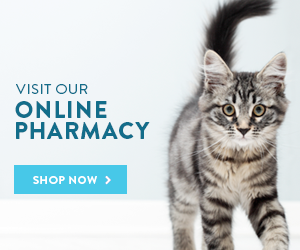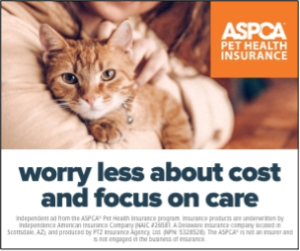
There is nothing quite like the grief of loosing a pet, this is undeniable. Our furry friends are such a huge a part of our lives and our hearts, and there is an unforgettable emptiness after they’re gone. One of the hardest situations to deal with is unexpected euthanasia that comes suddenly with no time to prepare. The best way to avoid such situation is early detection of cat disease and illness. Noticing your felines first subtle signs of sickness can lead to early diagnosis and can help avoid unprepared loss.
In the veterinary world, when a patient presents with sudden abnormal behaviors or signs of illness that cannot yet be determined, we call it “ADR”, or ain’t doing right. It is common in older cats who have no previous history of disease and have been healthy for most of their life. As a pet owner, it is important to be able to pick up on to the early signs of ADR, but first you must be able to understand and identify them. There are multiple key points to look out for as your cat ages.
- Visible changes in your cat are important in determining if there is something wrong. Changes like weight loss, abnormal gait, lack of luster to the coat, or even something as subtle as an unusual look in their eyes can be the first signs of an illness.
- Behavior changes can range from obvious and alarming, to subtle and hard to notice. Some of the more obvious changes in behavior include hiding, if they are typically social. Subtle signs can be as simple as sleeping in an odd location or deciding not to play with a toy that they usually love.
- Changes in appetite is a common sign that should never be ignored. If your cat doesn’t finish or decides to skip a meal, it is likely there is something brewing. Also, it is not uncommon in some cat diseases for cats to become more hungry. If you notice they are begging more often or seem ravenous, they could be telling you they are sick.
- Changes in thirst is also common with many cat disease s. An increase in thirst can be an early sign of illnesses such as kidney disease or diabetes. If you notice you have to fill up the water bowl more than usual, don’t ignore it!
- Vocalization is very common in cats who are in pain or uncomfortable. Howling or an increase in vocalization is an easy sign to pick up on, and it is pretty hard to ignore. It is important to listen when your cat tells you there is something wrong!
There are many more subtle signs that your cat can begin to show if they are ADR. These may include a fowl odor, such as bad breath, inappropriate elimination or use of the litter box, excessive scratching or grooming, vomiting or diarrhea, or becoming less social or affectionate.
It is important to remember that as a pet owner, you know your cat better than anyone else. Trust your instinct. If you think something may be off, or something seems different, do not hesitate to call your veterinarian. It could be a matter of early detection of a life threatening cat disease, and you will be thankful that you called.
by Leah Carlson, CVT
 Losing a Pet
Losing a Pet


